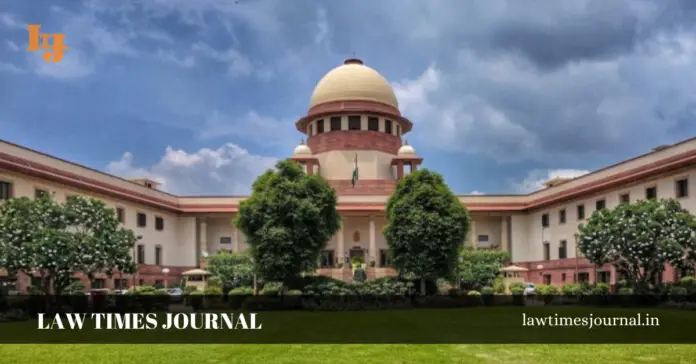
On 28th February, the Bench of Justice Arun Mishra and Justice M. R. Shah ruled that to go on strike/boycott courts cannot be justified under the guise of the right to freedom of speech and expression under Article 19(1) (a) of the Constitution.[1]
Brief facts:
The Advocates in the District of Dehradun, in several districts of Haridwar and Udham Singh Nagar district in the State of Uttarakhand have been boycotting the Courts on all Saturdays for the past (more than) 35 years. The respondent approached the High Court by way of the writ jurisdiction (PIL)[2].
The Supreme Court, in its judgment stated the report given by High Court to the law commission with respect to the State of Uttarakhand for the years 2012-2016 showed in Dehradun district, the Advocates were on strike for 455 days (on an average 91 days per year) and in Haridwar district it is 515 days (about an average 103 days per year). The High Court issued several directions. Being aggrieved by those directions, judgment and order, the District Bar Association, Dehradun has preferred Special Leave Petition in the Supreme Court.
Argument by petitioner:
- Shri Mahabir Singh appeared for the petitioner, who contended that Hon’ble High Court has not considered facts that the right to go on strike/boycott courts is a fundamental right to Freedom of Speech and Expression guaranteed under Article 19(1)(a) of the Constitution of India.
- Petitioner further referred to Section 48 of the Advocates Act which conferred the protection for any act done in good faith and thus the directions issued by the High Court are contrary to the section 48 of the Advocates Act[3].
Decision of the court:
The Supreme Court while holding the decision of high court justified, dismissed the petition. It held that
“If the lawyers would have worked on those days, it would have been in the larger interest and it would have achieved the ultimate goal of speedy justice, which is now recognized as a fundamental right under Articles 14 and 21 of the Constitution. When the Institution is facing a serious problem of arrears and delay in disposal of cases, how the Institution as a whole can afford such four days strike in a month.”
Key features of the decision:
The court also held that the directions issued by High Court are in consonance with the decisions of the court in the cases of Ex-Capt. Harish Uppal v. Union of India,[4] CommonCause, A Registered Society v. Union of India[5] and Krishnakant Tamrakar v. State of M.P.[6]. The court referred Ex-Capt. Harish Uppal v. Union of India, wherein it was held that and I quote:
“Nothing is more destructive of public confidence in the administration of justice than incivility, rudeness or disrespectful conduct on the part of a counsel towards the court or disregard by the court of the privileges of the Bar.”
The Supreme Court further referred Ex- Capt.HarishUppal case, where it was also held that:
“The right to practise, no doubt, is the genus of which the right to appear and conduct cases in the court may be a species. Courts of law are structured in such a design as to evoke respect and reverence to the majesty of law and justice.”
The Supreme Court further made reference to the case of Common Cause, A Registered Society, wherein it was held that,
“In conclusion, it is held that lawyers have no right to go on strike or give a call for boycott, not even on a token strike. It was held that only in the rarest of rare cases where the dignity, integrity and independence of the Bar and/or the Bench are at stake, courts may ignore (turn a blind eye) to a protest, abstention from work for not more than one day.”
Further in the same case, the Supreme Court held
“It is being clarified that it will be for the court to decide whether or not the issue involves dignity or integrity or independence of the Bar and/or the Bench. Therefore in such cases the President of the Bar must first consult the Chief Justice or the District Judge before advocates decide to absent themselves from court. The decision of the Chief Justice or the District Judge would be final and have to be abided by the Bar. Thus a Constitution Bench of this Court has held that the Bar Councils are expected to rise to the occasion as they are responsible to uphold the dignity of courts and majesty of law and to prevent interference in administration of justice. In case any Association calls for a strike or a call for boycott, the State Bar Council concerned and on its failure the Bar Council of India must immediately take disciplinary action against the advocates who give a call for strike and if the committee members permit calling of a meeting for such purpose, against the committee members.”
Further court referred to Dr. Ambedkar’s speech[7] wherein he said and I quote ,
“When there was no way left for constitutional methods for achieving economic and social objectives, there was a great deal of justification for unconstitutional methods. But where constitutional methods are open, there can be no justification for these unconstitutional methods. These methods are nothing but the Grammar of Anarchy and the sooner they are abandoned, the better for us.”
The Supreme Court further made reference to Krishnakant Tamrakar, the court had the occasion to consider how uncalled for frequent strikes obstructs the access to justice and what steps are required to remedy the situation.Access to speedy justice is a part of the fundamental rights under Articles 14 and 21 of the Constitution of India.
Edited by Pragash Boopal
Approved & Published – Sakshi Raje
Reference
[1]https://drive.google.com/viewerng/viewer?url=https://www.livelaw.in/pdf_upload/pdf_upload-370733.pdf
[2]/economictimes.indiatimes.com/news/politics-and-nation/sc-holds-over-35-years-long-strike-of-uttarakhand-lawyers-on-every-saturday-illegal/articleshow/74383864.cms
[3]https://www.livelaw.in/top-stories/boycott-of-courts-cant-be-justified-as-freedom-of-speech-expression-sc-on-lawyers-strikes-153275
[4] (2003) 2 SCC 45
[5] (2006) 9 SCC 295
[6](2018) 17 SCC 27
[7]on 25-11-1949 CAD Vol. 11)








